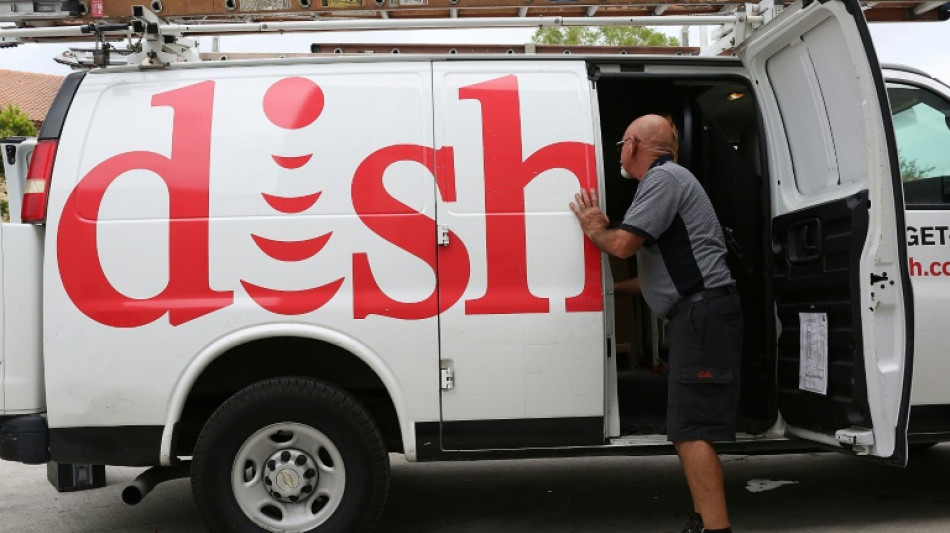
-
 From the Andes to Darfur: Colombians lured to Sudan's killing fields
From the Andes to Darfur: Colombians lured to Sudan's killing fields
-
Eagles win division as Commanders clash descends into brawl

-
 US again seizes oil tanker off coast of Venezuela
US again seizes oil tanker off coast of Venezuela
-
New Zealand 35-0, lead by 190, after racing through West Indies tail

-
 West Indies 420 all out to trail New Zealand by 155
West Indies 420 all out to trail New Zealand by 155
-
Arteta tells leaders Arsenal to 'learn' while winning

-
 Honour to match idol Ronaldo's Real Madrid calendar year goal record: Mbappe
Honour to match idol Ronaldo's Real Madrid calendar year goal record: Mbappe
-
Dupont helps Toulouse bounce back in Top 14 after turbulent week

-
 Mbappe matches Ronaldo record as Real Madrid beat Sevilla
Mbappe matches Ronaldo record as Real Madrid beat Sevilla
-
Gyokeres ends drought to gift Arsenal top spot for Christmas

-
 Arsenal stay top despite Man City win, Liverpool beat nine-man Spurs
Arsenal stay top despite Man City win, Liverpool beat nine-man Spurs
-
US intercepts oil tanker off coast of Venezuela

-
 PSG cruise past fifth-tier Fontenay in French Cup
PSG cruise past fifth-tier Fontenay in French Cup
-
Isak injury leaves Slot counting cost of Liverpool win at Spurs

-
 Juve beat Roma to close in on Serie A leaders Inter
Juve beat Roma to close in on Serie A leaders Inter
-
US intercepts oil tanker off coast of Venezuela: US media

-
 Haaland sends Man City top, Liverpool beat nine-man Spurs
Haaland sends Man City top, Liverpool beat nine-man Spurs
-
Epstein victims, lawmakers criticize partial release and redactions
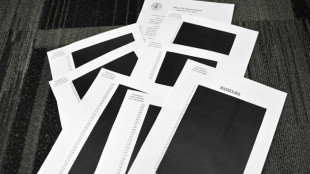
-
 Leverkusen beat Leipzig to move third in Bundesliga
Leverkusen beat Leipzig to move third in Bundesliga
-
Lakers guard Smart fined $35,000 for swearing at refs

-
 Liverpool sink nine-man Spurs but Isak limps off after rare goal
Liverpool sink nine-man Spurs but Isak limps off after rare goal
-
Guardiola urges Man City to 'improve' after dispatching West Ham

-
 Syria monitor says US strikes killed at least five IS members
Syria monitor says US strikes killed at least five IS members
-
Australia stops in silence for Bondi Beach shooting victims

-
 Olympic champion Joseph helps Perpignan to first Top 14 win despite red card
Olympic champion Joseph helps Perpignan to first Top 14 win despite red card
-
Zelensky says US mooted direct Ukraine-Russia talks on ending war

-
 Wheelchair user flies into space, a first
Wheelchair user flies into space, a first
-
Brazil's Lula, Argentina's Milei clash over Venezuela at Mercosur summit

-
 Haaland sends Man City top, Chelsea fightback frustrates Newcastle
Haaland sends Man City top, Chelsea fightback frustrates Newcastle
-
Thailand on top at SEA Games clouded by border conflict

-
 Chelsea chaos not a distraction for Maresca
Chelsea chaos not a distraction for Maresca
-
Brazil's Lula asks EU to show 'courage' and sign Mercosur trade deal

-
 Africa Cup of Nations to be held every four years after 2028 edition
Africa Cup of Nations to be held every four years after 2028 edition
-
Zelensky says US mooted direct Ukraine-Russia talks on ending war in Miami

-
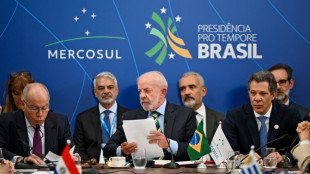 Armed conflict in Venezuela would be 'humanitarian catastrophe': Lula
Armed conflict in Venezuela would be 'humanitarian catastrophe': Lula
-
Chelsea fightback in Newcastle draw eases pressure on Maresca

-
 FIFA Best XI 'a joke' rages Flick over Raphinha snub
FIFA Best XI 'a joke' rages Flick over Raphinha snub
-
Swiss Von Allmen pips Odermatt to Val Gardena downhill

-
 Vonn claims third podium of the season at Val d'Isere
Vonn claims third podium of the season at Val d'Isere
-
India drops Shubman Gill from T20 World Cup squad

-
 Tens of thousands attend funeral of killed Bangladesh student leader
Tens of thousands attend funeral of killed Bangladesh student leader
-
England 'flat' as Crawley admits Australia a better side
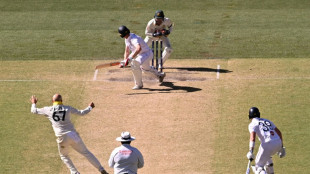
-
 Australia four wickets from Ashes glory as England cling on
Australia four wickets from Ashes glory as England cling on
-
Beetles block mining of Europe's biggest rare earths deposit

-
 French culture boss accused of mass drinks spiking to humiliate women
French culture boss accused of mass drinks spiking to humiliate women
-
Burning effigy, bamboo crafts at once-a-decade Hong Kong festival

-
 Joshua knocks out Paul to win Netflix boxing bout
Joshua knocks out Paul to win Netflix boxing bout
-
Dogged Hodge ton sees West Indies save follow-on against New Zealand

-
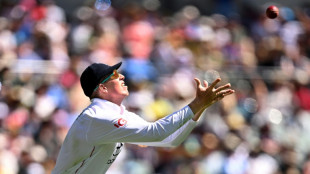 England dig in as they chase a record 435 to keep Ashes alive
England dig in as they chase a record 435 to keep Ashes alive
-
Wembanyama 26-point bench cameo takes Spurs to Hawks win


US slaps TV provider with first-ever space debris fine
US authorities said they have issued a "breakthrough" first-ever fine over space debris, slapping a $150,000 penalty on a TV company that failed to properly dispose of a satellite.
On Monday the Federal Communications Commission (FCC) came down on Dish for "failure to properly deorbit" a satellite called EchoStar-7, in orbit since 2002.
"This marks a first in space debris enforcement by the Commission, which has stepped up its satellite policy efforts," the FCC, which authorizes space-based telecom services, said in a statement.
As the geostationary satellite came to the end of its operational life, Dish had moved it to an altitude lower than the two parties had agreed on, where it "could pose orbital debris concerns," the FCC said.
The commission said Dish, a US satellite television provider, pledged in 2012 to elevate the satellite to 300 kilometers (190 miles) above its operational arc.
But with fuel running low, it retired the satellite at an altitude just over 120 kilometers above the original arc.
"As satellite operations become more prevalent and the space economy accelerates, we must be certain that operators comply with their commitments," said FCC enforcement bureau chief Loyaan Egal.
"This is a breakthrough settlement, making very clear the FCC has strong enforcement authority and capability to enforce its vitally important space debris rules."
The FCC said the settlement "includes an admission of liability from the company and an agreement to adhere to a compliance plan and pay a penalty of $150,000."
In a statement Tuesday, Dish appeared to counter the FCC over disposal requirements, and argued that the commission's enforcement arm made "no specific findings that EchoStar-7 poses any orbital debris safety concerns."
"As the Enforcement Bureau recognizes in the settlement, the EchoStar-7 satellite was an older spacecraft that had been explicitly exempted from the FCC's rule requiring a minimum disposal orbit," a Dish spokesperson said in a statement.
"DISH has a long track record of safely flying a large satellite fleet and takes seriously its responsibilities as an FCC licensee."
- Collision risks -
The US aviation regulator, FAA, recently announced its intention to reduce space debris by requiring private companies to dispose of the upper stages of rocket launch vehicles by, for example, returning them to the Earth's atmosphere or moving them to a less congested "graveyard orbit."
The new regulation, which has yet to be definitively adopted, already exists for government space missions.
"If left unchecked, the accumulation of orbital debris will increase the risk of collisions and clutter orbits used for human spaceflight and for satellites," the Federal Aviation Administration said.
The European Space Agency estimates that around one million pieces of debris larger than a centimeter -- big enough to "disable a spacecraft" -- are in Earth's orbit.
They are already causing problems, from a near-miss in January last year involving a Chinese satellite, to a five-millimetre hole knocked into a robotic arm on the International Space Station in 2021.
With satellites now crucial for GPS, broadband and banking data, collisions pose significant risks on Earth.
F.Bennett--AMWN



